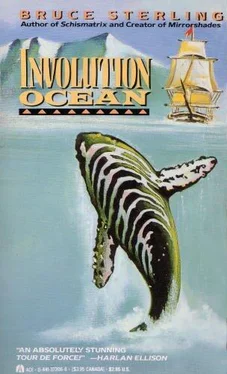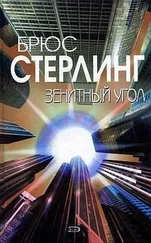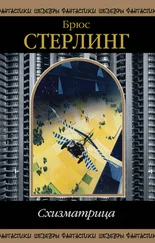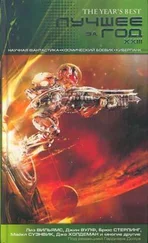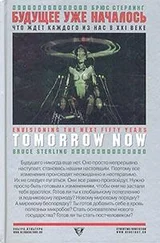“But the land began to falter. Little was thought Of it at first. There were many to propose solutions, much wealth with which to carry them out. Dike off the sea? No, Venice is surrounded by mudflats. Perhaps float the island itself? But nature responded with fire and earthquake to any such attempt. The rock beneath the city was unstable, rotten with caverns, seething with subtle molten fires. The risk of a cataclysm was too great.
“The decline was slow; many times there were eras of relative stability, when citizens looked at one another and saw the despair slowly melting away. But no sooner was there a renewal of confidence, than there would be another slow shock, a dull descent. Then her husband betrayed the Bride of the Sea.
“By my own time, the Venetians lived in the third and second stories of buildings partially drowned. The population was less than a tenth of that in Venice’s heyday. Mine was a remnant of an ancient, noble family. I remember my childhood well. I spent much time poling or paddling my dead black pagoda through the sunken streets. The water was still and clear and always cold. I remember the sunken, shattered pylons, the drowned statues festooned with anemones, sea urchins crawling spinily across the drowned mosaic faces of Venetian madonnas, obscured by scattered sand. Sometimes I dived in the cold water, seeking treasure, and would come home clammy and slimed with weed, to meet my mother’s mild and sad rebuke . . .” here my voice broke momentarily. My mother had died when I was young; surely it still hurt somewhere inside. And this was my own life, my own lie, a surrogate of my own grafted to my personality. It was flowing tonight as never before, even though I had to give it the elaborate, involuted verbal style favored by Terrans. My own creation, my own Be, my own soul. My art. Tears came to my eyes.
“It was a restrictive culture, stylized past all vitality, still beautiful, like the perfectly preserved cadaver of a young bride. And I was essentially alone. Many times I would leave parties or poetry contests to wander the streets alone in my black pagoda. Many of the Venetian buildings were deserted, theaters, mansions, pensions crumbling in wet decay. I didn’t mind a little mildew, and I often climbed through empty windows and waded across slimy floors with my lantern. I would sometimes collect odd shells—"
“What?”’ Dalusa said.
“Shells. The exoskeletons of dead aquatic organisms. Sometimes I found the barnacled remnants of earlier centuries. Hie shard of a Greek amphora, a shiny aluminum can from the Industrial Age, some washed-up fragment of a lost memory . . .”
“Why did you leave?”
“I grew older. There was talk of marriage, of an alliance to an ancient family even more decrepit than our own. I knew suddenly that I could not endure another week in Venice, not another day of their gentle melancholy, not another hour of fashionable despair. I might have fled to another city. Paris, Portland, Angkor Wat . . , but one planet seemed too small. I left and have not,seen Venice since. Nor do I care to see it.”
My voice shook. This hurt me, bit clear to the bone. This invented history was much closer to me than my actual childhood, those sordid years of rejection and scorn only partially cushioned by my father’s ill-gotten wealth. I had tried to forget my boorish idiot comrades, my father’s muscular attempts to force me into bis own mold, and the breakdowns. The breakdowns that had revealed to me the miracle of tranquilizers. Then stimulants, first legitimately, then a whole illicit galaxy of multicolored pills, encapsulated joy. Instant strength, sniffed, swallowed, inhaled, or injected. I had tried to forget the pain and had partially succeeded. But I treasured the memories of those drugs. I knew I had finally found a career I could stomach. Within a few years I was dealing, a respected member of an odd, bat profitable, sub branch of pharmacy. I had never regretted it.
Later I fell asleep.
* * *
The next morning the sailors were unusually voluble. One of the largest, (me Perkum by name, paused in mid-chew to remark, “You know, this captain of ours is really a nut!”
The others nodded and went back to their meal.
Captain Desperandum was everywhere that day, taking dust samples with hinged buckets, dissecting a dead pilot fish, taking notes on the behavior of the sharks. In full view of the crew he took my sheared-ofi whaling spade and bent it double with his bare hands. Seeing this the crew returned to their tasks with redoubled vigor.
By midmorning we had reached the fringes of the krill soals. Desperandum threw a seine behind the ship and dragged out several hundred pounds of plankton. It scattered across the deck like so many pounds of jewels, nugget-sized organisms in every conceivable geometric shape: pyramids, tetrahedrons, octahedrons, even dodecahedrons, glittering in their silicon armor and crunching into green smears beneath the captain’s boots.
At noon we found another whale, ploughing sluggishly through the dust and chewing plankton with a noise like grinding pack ice. Three new crewmembers went through the bloodletting ritual. Blackburn returned to his harpoon gun and, surprisingly, missed with the first harpoon. The second and third lodged, though, and as the ship drew nearer he fired a fourth at almost point-blank range, piercing the creature’s lungs so that it choked and spurted purplish blood. It died in convulsions.
Dalusa swept in from the airborne archimedean spiral that was her scouting pattern. Sharks were approaching at top speed from the south, but they were two miles away. There was plenty of time to butcher the whale; the sharks would be too late to get more than the leavings. I wondered how they knew of the whale’s death at all. Had the flying fish spotted the monster from the air? Or was there ft subtler method?
To the south loomed the massive moon-colored wall of the Nullaqua Crater specifically, the monstrous jutting of the Seagull Peninsula.
There was a thick white band about a quarter of the way up the pieninsular cliffside. I knew intellectually that the band was actually two stacked” miles of white seagulls, nesting, screaming, and squabbling in incredible numbers. Survival was strictly defined for the seagulls; at the bottom, they would be smothered by plummeting guano, at the top, they would starve to death commuting to and from their nests. Beneath the white band it was greenish gray, where tenacious lichen struggled desperately for survival, clinging to centuries’ accumulated layers of parched excrement.
Somewhere in that immense gray band was a small dung-covered lump that was the Highislite warship Progress. It was a quarter of a mile up the cliff, tossed to destruction by the dust tsunami of the Glimmer Catastrophe, three centuries ago. For decades the wreck had been visible, its gleaming mangled metal a memento mori, a symbol of guilt to generations of Nullaquans. For years a pair of binoculars could pick out the crushed mummies that were the Progress’s crew, perfectly preserved, their yawning mouths with blackened tongues, slowly packing full of dry gray guano. Ton after ton of raining birdshit slowly buried the wreck, clinging like ice to the tangled rigging, dripping across the metal hull like gray stalactites. Now the wreck was completely shrouded, dotted with lichen, buried by time like a childhood aspiration never attained or an unhappy love affair slowly smoothed over by the amassed trivia of day-to-day living. It was a final end to the Nullaquan Civil War, and the supposed punishment for sin had resulted in a crushing moral victory for the slaughtered Perseverans, fanatic fundamentalists of the worst stripe. It was true that they had been butchered to a man a year before the catastrophe but even so, after three centuries their dead hands were still locked around Nullaqua’s living throat.
Читать дальше
